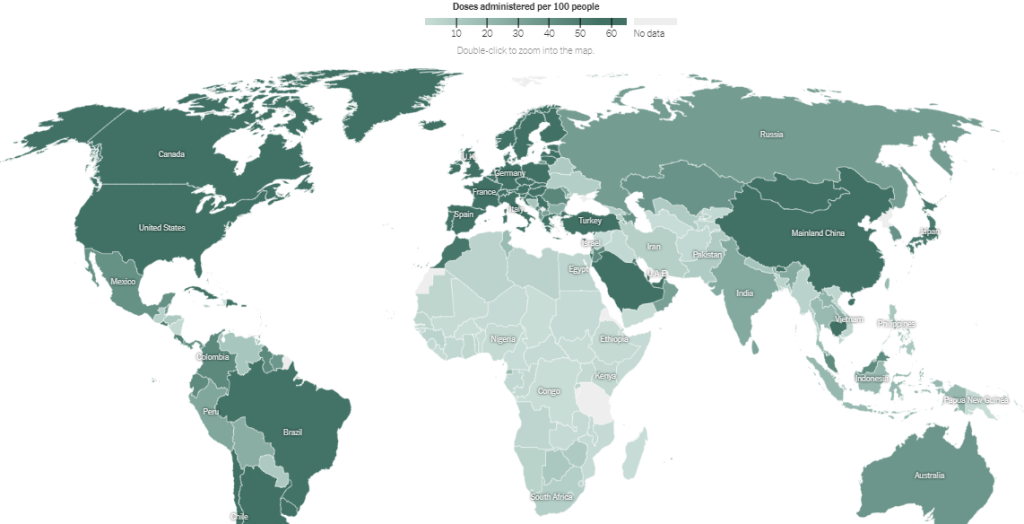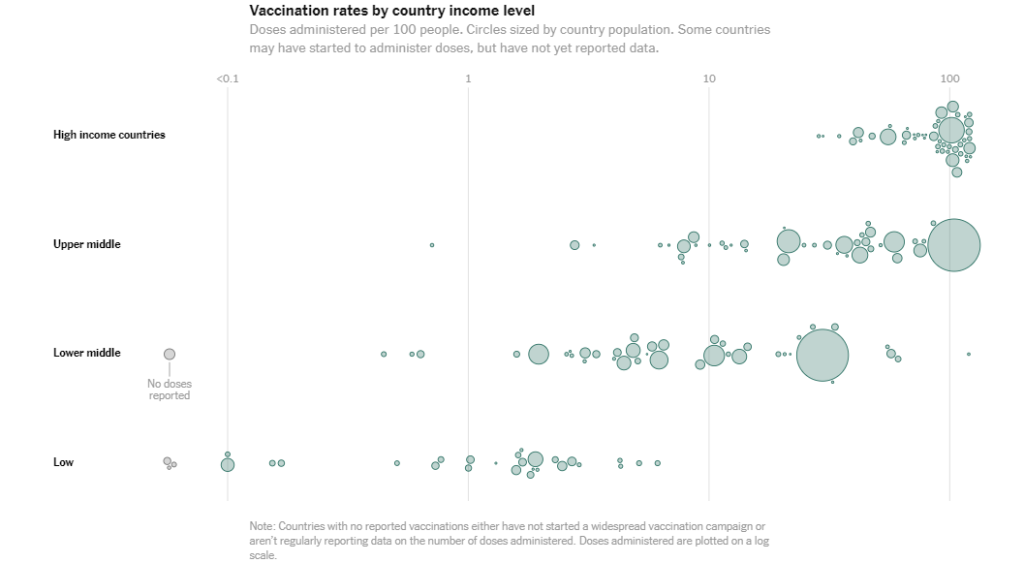After a year-and-a-half of widespread disruption we are now seemingly emerging at the other side of the pandemic, but caution remains. However optimistic we are that we will see a rebound in travel demand, there is equal pessimism over government strategies. That is all in front of a complicated backdrop and a virus that continues to evolve and worry health officials.
The landscape is constantly changing, but every piece of research provides us an insight into the post-pandemic environment and path to recovery. In Mar-2021, business travel management company, CWT, polled its customers who said the most important enablers to see them return to business travel were widespread vaccine distribution (weighting the importance of this 4.5 out of 5) and case count reduction (weighted 3.2 out of 5).
The US and UK, which are amongst the biggest business travel markets in the world, are currently making constant progress with their vaccination campaigns. That's certainly encouraging, as is news that restrictions on trans-Atlantic travel between the two countries could be removed shortly. Unfortunately new waves of the more infectious Delta variant mean that infection levels remain high.

According to data from the New York Times vaccination tracker, more than 3.65 billion vaccine doses have now been administered worldwide, equal to 48 doses for every 100 people. But vaccine inequality remains stark, especially evident across Africa and Central Asia.
The data shows that 85% of shots that have gone into arms worldwide have been administered in high- and upper-middle-income countries. Only 0.3 percent of doses have been administered in low-income countries. Less wealthy countries are still relying on a vaccine-sharing arrangement called Covax, which aims to provide two billion doses by the end of the year.

While vaccines will certainly play an important role in making people feel confident in traveling again, a number of factors could impact the timeframe over which travel resumes.
For example, much will depend on how quickly countries are able to inoculate their populations, how effective the vaccine proves to be in limiting the transmission and spread of the disease - particularly against new mutant strains of the virus - and also how long immunity lasts after vaccination. These are all questions that it remains too early to answer with any confidence.
CWT believes there are three main factors to consider in understanding the outlook for global travel - health issues, political shifts and the mental health and wellbeing of employees. Here's its viewpoint on each of these factors:
- Health issues - "travel is a potent force in the emergence, and spread of disease in geographic areas and populations. 75% of newly emerging diseases are zoonotic (transmitted between humans and animals), according to the Eco Health Alliance. Like Covid, they spread fast. Follow sources like WHO and International SOS for insight into global health concerns as they unfold."
- Political shifts - "travel restrictions and border closures directly affect and disrupt trade, freight, business travel and the supply of services that rely on the presence of individuals abroad."
- The mental health and wellbeing of employees - "stress levels can be intensified during travel (more so after a travel hiatus triggered by a global crisis) due to a lack of familiar support systems, disrupted daily routines, language barriers, culture shock and unexpected situations."
It is clear that the road to recovery is a complex one and we will be learning to live alongside COVID-19 for some time. Right now it is essential that we continue to collaborate and adapt to ensure that we can continue to travel safely, more environmentally-friendly and support a sustainable recovery.